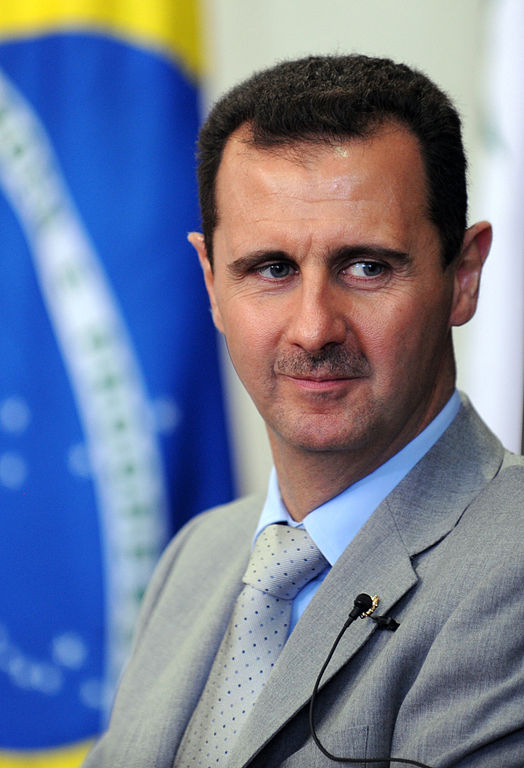Sanctioning Syria
 Violence in Syria has persisted over the past months since the beginning of the Arab Spring uprising in the nation, and certainly seems unlikely to calm down in the upcoming months if recent unrest is any reliable indicator. President Bashar al-Assad has repeatedly refused to step down from power and has even condoned the use of force against his own citizens by military forces. The European Union has initiated several rounds of sanctions against the regime in response to these developments: a reassuring step, and one that shows a dedication to democratic ideals even in the face of the crippling economic downturn that has left few parts of the world, if any, untouched. However, these sanctions will have little effect but to bleed all countries involved dry if they are not summarily increased, and quickly so.
Sanctions are often a tricky solution to pass through legislatures, especially in recent years of coalition governments and legislative gridlock. Few executives of the major Western powers – Britain, France, the United States, and Germany, for example – have constitutional rights to implement an effective sanction unilaterally, and most would balk at the political repercussions even if they could. As I mentioned in an earlier article, however, certain institutions of the EU have the wherewithal to make difficult decisions like these in a quick turnaround, and the Council of Europe (most notably) has been known to exercise this power. It is this collective of foreign ministers that has imposed the recent rounds of embargoes against the illegitimate Syrian regime, and this has certainly been a step in the right direction. They are putting their money where their mouths are, which is an admirable move.
Violence in Syria has persisted over the past months since the beginning of the Arab Spring uprising in the nation, and certainly seems unlikely to calm down in the upcoming months if recent unrest is any reliable indicator. President Bashar al-Assad has repeatedly refused to step down from power and has even condoned the use of force against his own citizens by military forces. The European Union has initiated several rounds of sanctions against the regime in response to these developments: a reassuring step, and one that shows a dedication to democratic ideals even in the face of the crippling economic downturn that has left few parts of the world, if any, untouched. However, these sanctions will have little effect but to bleed all countries involved dry if they are not summarily increased, and quickly so.
Sanctions are often a tricky solution to pass through legislatures, especially in recent years of coalition governments and legislative gridlock. Few executives of the major Western powers – Britain, France, the United States, and Germany, for example – have constitutional rights to implement an effective sanction unilaterally, and most would balk at the political repercussions even if they could. As I mentioned in an earlier article, however, certain institutions of the EU have the wherewithal to make difficult decisions like these in a quick turnaround, and the Council of Europe (most notably) has been known to exercise this power. It is this collective of foreign ministers that has imposed the recent rounds of embargoes against the illegitimate Syrian regime, and this has certainly been a step in the right direction. They are putting their money where their mouths are, which is an admirable move.
These measures will not be enough per se, however. As any reader of the news can see, there is much talk of the effects that these actions are meant to have, but they simply have not been having the desired effect. Assad’s regime shows little sign of stopping its violent repression, and every day more lives are lost in a struggle for democracy. While the EU has frozen accounts and prevented visa applications for certain individuals, it is unlikely that all of their money is in European accounts, or that they plan on fleeing the country before the uprising succeeds or is quashed. Furthermore, the most recent measures are aimed at the trade of precious metals and stones, but these markets are not large enough to really force the government to reconsider what they are doing.
The Council needs to take greater steps and soon. It is easy to forget that sanctions also hurt the economies of the sanctioners, and Europe is in no position to allow more egregious economic suffering. Sanctions that lack sufficient wallop serve only to weaken all parties. Short of military intervention, a step that few Westerners are prepared (ideologically, practically, and monetarily) to take, the European foreign ministers need to be prepared to deliver a swift economic blow – and to recover from this mess as soon as possible – for the sake of all involved.
